Search Engine Optimization FAQs
Answers to the most asked questions about Search Engine Optimization, Google and what you need to know.
SCHEDULE A FREE CONSULTATION
"*" indicates required fields
So, you want to start in SEO? Or are looking for ways on how your website can be better optimized and found by potential customers, then look no further. The following will give an excellent overview of what it takes.
You can’t always be sure of what information you need, especially when there are so many different answers on the web.
In the ever-changing world of SEO, some tactics and best practices have changed over time. Google’s algorithms are also updated frequently which means your rankings could change at any moment if you don’t stay on top of what is popular in their eyes.
A lot changes with search engine optimization (SEO) because it’s based on heavily debated aspects like link building or content quality but there remain certain things that remain constant no matter how much everything else shifts – this includes an explanation for layman terms so they understand why these elements are important.
We’ve answered 50 of the most commonly asked questions about the SEO basics.

What is SEO?
SEO stands for “Search Engine Optimization”. It is a long-term marketing strategy employed to improve a website’s visibility and organic search results in google and other global search engines. By improving the ranking of a website for certain key terms that relate to their business, more web traffic will be driven to the site which can lead to increased revenue. Many different factors contribute to a website’s SEO ranking, such as the quality of the content, the structure of the website, and the number of external links pointing to the site.
What are the types of SEO?
There are three types of SEO: on-page SEO, off-page SEO, and technical SEO.
On-page SEO refers to all the measures that can be taken directly within the website in order to improve its position in the search rankings. This includes optimizing the website content, structure, and code as well as improving user experience.
Off-page SEO focuses on activities outside of the website that can impact its search engine rankings. This includes building high-quality backlinks from other websites, social media signals, and Local SEO.
Technical SEO is a more complex type of optimization that looks at the underlying code and architecture of a website. Its goal is to ensure that the site is easy for search engines to crawl and index so that it can rank higher in the search results.
SEO is an important part of any digital marketing strategy. It can help you improve your website’s visibility in the search results and drive more traffic to your site. However, SEO is a complex and ever-changing field, so it’s important to stay up-to-date on the latest trends and best practices.
If you’re looking for more information on SEO, be sure to check out our complete guide to SEO. This guide covers everything from keyword research to link building to technical SEO.
How can I index my new website in Google search really quickly?
To index your new website in Google search really quickly, you’ll need to make sure that your site is well-optimized for search engines. This means including relevant keywords in your content, optimizing your website’s title and Meta tags, and building backlinks to your site. You can also submit your website to Google’s Webmaster Tools to speed up the process.
If you follow these tips, you should be able to index your new website fairly quickly. However, it’s important to keep in mind that SEO is a long-term process, so don’t expect overnight results. It may take weeks or even months for your site to appear in the search results. But if you’re patient and consistent with your SEO efforts, you will eventually see results.
And remember, even after your site is indexed, you need to continue optimizing it to maintain your ranking in the search results. So keep up the good work, and soon you’ll be seeing traffic from Google!
What is a sitemap?
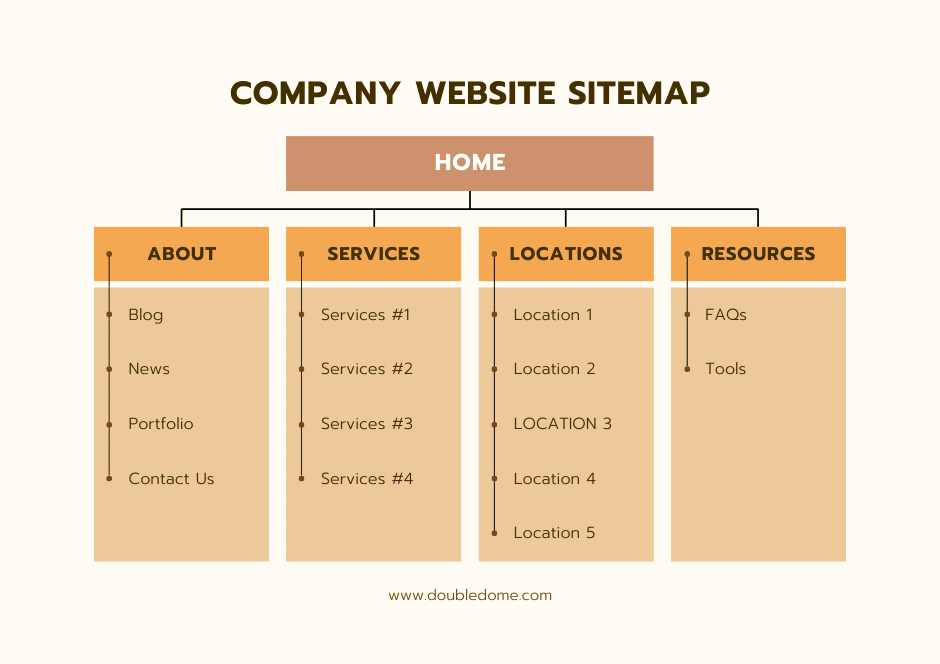
A sitemap is a file that contains a list of all the pages on your website. It allows webmasters to include additional information about each page, such as when it was last updated and how often it changes. This information can be useful for search engines, which use it to crawl and index websites.
Creating a sitemap is a good way to help search engines find and index all the pages on your site. If you have a large website, or one that is frequently updated, you may want to create multiple sitemaps to help search engines keep up with all the changes.
You can also use a sitemap to specify the order in which pages should be crawled, and to indicate which pages are most important.
Sitemaps can be created manually or generated automatically. There are many tools that can help you create a sitemap, including Google’s own Sitemap Generator. Once you’ve created your sitemap, you can submit it to search engines through their webmaster tools.
What is the best blogging platform for better SEO?
There are a number of different blogging platforms that can be used for better SEO. WordPress is a popular option, as it offers a number of features that help to improve your website’s search engine ranking. Tumblr and Blogger are also popular platforms that offer similar features. Ultimately, the best blogging platform for better SEO is the one that best meets your needs and provides the features you require.
How much does SEO cost?
The cost of SEO can vary depending on a number of factors, such as the size and scope of your project. Generally speaking, however, most SEO projects will fall into one of three categories: small, medium, or large. Small projects may start at around $500, while medium projects may cost between $2,000 and $5,000. Large projects can cost upwards of $20,000. Ultimately, the best way to determine the cost of your project is to consult with an experienced SEO professional.
How long does it usually take to get results from SEO?
The time frame for SEO results can vary depending on a number of factors, such as the size and scope of your project. Generally speaking, however, most SEO projects will take between 3 and 6 months to start seeing results. However, it is important to keep in mind that SEO is an ongoing process, so even after you start seeing results, you will need to continue investing in SEO in order to maintain those results.
What is keyword research and how to do it?
Keyword research is the process of finding and selecting keywords that are relevant to your business or website. In order to do keyword research effectively, you will need to use a variety of tools and resources, such as keyword research software, online directories, and search engines. Once you have found a list of potential keywords, you will need to analyze them in order to determine which ones are most likely to generate traffic and conversions. After you have selected your keywords, you will need to implement them into your website content in order to improve your website’s search engine optimization.
What is on-page SEO? How can I do it?
On-page SEO is the process of optimizing a website for search engines. It involves improving the website’s title, Meta tags, keywords, and other elements that influence how the site appears in search engine results pages (SERPs). On-page SEO is an important part of any SEO strategy, as it helps to make sure that your site is visible and relevant to potential customers.
To do on-page SEO effectively, you will need to use a variety of tools and resources, such as keyword research software, online directories, and search engines. Once you have found a list of potential keywords, you will need to analyze them in order to determine which ones are most likely to generate traffic and conversions. After you have selected your target keywords, you will need to incorporate them into your site’s content in order to optimize your site for the search engines.
One of the most important aspects of on-page SEO is making sure that your site’s title tag and meta tags are optimized for the keywords you are targeting. The title tag is the text that appears in the search engine results pages (SERPs) when someone performs a search using those keywords. The meta tags are snippets of code that provide information about your site to the search engines.
In order to optimize your site for the search engines, you will also need to create high-quality, keyword-rich content. This content should be informative and relevant to your target audience, and it should include the keywords you are targeting. In addition, your content should be well-written and free of grammar and spelling errors.
Another important aspect of on-page SEO is creating internal links within your site. Internal links are links that point from one page on your site to another page on your site. These links help the search engines understand the structure of your site and can also help improve your site’s PageRank.
Finally, you will need to make sure that your website is accessible to both users and search engine crawlers. This means ensuring that your website is free of broken links and errors, and that it can be easily navigated by both humans and robots.
What is off-page SEO? How to do it?
Off-page SEO is the process of optimizing your website for the purpose of earning higher rankings in the search engine results pages (SERPs). It involves activities such as link building, social media marketing, and directory submission.
Link building is the process of acquiring links from other websites to your own. The more high-quality links you have pointing to your site, the higher your site will rank in the SERPs. Social media marketing can also help improve your website’s ranking by creating a buzz around your brand and driving traffic to your site.
Directory submission involves submitting your website’s URL to online directories in order to earn backlinks. Backlinks are links from other websites that point to your site. They are an important ranking factor in SEO, and the more backlinks you have pointing to your site, the higher your site will rank.
What is link building? What are the best link building strategies?
Link building is the process of earning backlinks to your website. Backlinks are links from other websites that point to your site. They are an important ranking factor in SEO, and the more backlinks you have pointing to your site, the higher your site will rank. There are many different link building strategies, but some of the most effective include directory submission, article marketing, and social media marketing.
Directory submission involves submitting your website’s URL to online directories in order to earn backlinks. Article marketing involves writing articles and submitting them to article directories with a link back to your site. Social media marketing can also help improve your website’s ranking by creating a buzz around your brand and driving traffic to your site.
The most important thing to remember when it comes to link building is that the quality of the links you have pointing to your site is more important than the quantity. A few high-quality links can have a much greater impact on your website’s ranking than a large number of low-quality links.
When submitting your website to directories, be sure to choose only reputable and high-quality directories. There are many low-quality directories out there that will not do anything to help your website’s ranking.
Article marketing can be an effective way to build links, but only if you submit your articles to high-quality article directories. Submitting your articles to low-quality article directories will not do anything to improve your website’s ranking.
Social media can be a great way to build links, but only if you use it correctly. Posting links to your website on social media sites without adding any valuable content will not do anything to improve your website’s ranking.
If you want to build high-quality links that will help improve your website’s ranking, focus on creating valuable content and submitting it to reputable websites and directories. By doing this, you will give yourself the best chance of success.
What is technical SEO and how does it help?
Technical SEO is a branch of SEO that deals with improving the technical aspects of a website in order to make it more visible and easier to crawl for search engines. Technical SEO includes optimizing the structure of a website, improving the speed and performance of the site, and making sure that the site is accessible to both users and search engine bots.
Technical SEO can be extremely helpful in improving a website’s ranking because it ensures that the site is as visible and easy to crawl as possible. By making sure that the technical aspects of the site are up to par, you can help improve its overall ranking in search engines. Additionally, technical SEO can help improve the speed and performance of a website, making it more user-friendly. Finally, technical SEO can make sure that a website is accessible to both users and search engine bots, ensuring that everyone can access the site’s content.
Implementing technical SEO on your website can be a bit daunting, but it’s definitely worth it in the long run. If you’re not sure where to start, we suggest checking out our Technical SEO Checklist. This checklist will walk you through all of the steps you need to take in order to optimize your site for search engines. Once you’ve gone through the checklist, you should have a much better understanding of how technical SEO works and how you can implement it on your own site.
Another important aspect of technical SEO is making sure that your website is accessible to both users and search engine bots. This means ensuring that everyone can access the site’s content, regardless of their device or browser. In order to do this, you’ll need to make sure that your website is responsive and that your pages are loading quickly.
What are the best SEO tools?
There are a number of different SEO tools available on the market, but some of the best include:
Google Search Console – This is a free tool provided by Google that allows you to track your website’s performance in the search results. It also provides insights into how Google views your site and can help you identify technical issues that need to be fixed.
Bing Webmaster Tools – Another free tool from a major search engine, Bing Webmaster Tools provides similar data to Google Search Console. It can be helpful to monitor both tools to get a complete picture of your website’s SEO.
Screaming Frog – This paid tool essential for any serious SEO campaign. It allows you to crawl your website and identify technical issues that need to be fixed. It also provides valuable insights into your website’s on-page SEO.
Ahrefs – Ahrefs is a paid all-in-one SEO tool that provides data on your website’s traffic, backlinks, and keyword rankings. It’s an essential tool for any serious SEO campaign.
These are just a few of the many tools that are available to help you track your website’s performance and improve your SEO. If you’re serious about improving your website’s ranking in the results, make sure to invest in the right tools.
What is Google TrustRank?
Google’s TrustRank is a measure of the trustworthiness of a website. The higher a website’s TrustRank, the more likely it is to be trustworthy and have high-quality content.
There are a number of factors that contribute to a website’s TrustRank, including the age of the domain, the number of backlinks from other trusted websites, and whether the website is frequently updated with fresh content.
Investing in SEO and building a strong backlink profile are both essential for improving your website’s TrustRank and achieving higher rankings in Google’s search results.
If you’re serious about improving your website’s search engine optimization, then you need to pay attention to your TrustRank. It’s an important factor that Google takes into account when determining how to rank websites in its search results.
Improving your TrustRank is a long-term SEO strategy that will pay off in the form of higher rankings and more traffic from Google. So if you’re looking to get ahead of your competition, start working on your TrustRank today!
What are backlinks?
Backlinks are links that point from one website to another. They also sometimes called “inbound links” or ” incoming links.” Backlinks are important because they help search engines determine the quality and relevancy of a site. If a website has a lot high-quality backlinks, then it is likely to rank higher in search results. the other hand, if a website has a lot of low-quality or spammy backlinks, then it is likely to be penalized by Google and could even be removed from its search results entirely.
Getting high-quality backlinks can be difficult, but it’s worth it because they can really help improve your website’s SEO. There are a few ways to get backlinks, such as guest blogging, directory submission, and social media.
Guest blogging: This is when you write a blog post for another website in your industry. Make sure that the site you’re guest blogging for is relevant to your niche, and that your blog post is high-quality and informative. Directory submission: This is when you submit your website to online directories. Make sure to choose only reputable directories, and to fill out your listing completely and accurately. Social media: This is when you share your content on social media sites like Twitter and Facebook. Make sure to share interesting and engaging content that will get people talking.
How to protect my site from being hacked?
No website is 100% safe from hacking, but there are steps you can take to protect your site. Here are a few of the most important:
- Use strong passwords and don’t reuse them.
- Keep your software up to date.
- Use a security plugin like Wordfence or Sucuri.
- Don’t click on unknown links or download suspicious files.
Help! My website search traffic is going down. How can I recover from it?
There could be a number of reasons for your website’s declining search traffic. It could be due to algorithm changes, new competition, or even something as simple as a change in your site’s design.
Here are a few things you can do to try and recover from a decline in search traffic:
- Analyze the reason for the decline.
- Make sure your website is optimized for SEO.
- Publish high-quality content regularly.
- Promote your content through social media and other channels.
- Monitor your website’s analytics closely and make changes accordingly.
If you’re not sure why your website’s search traffic is declining, it’s important to first analyze the reason for the decline. Once you know the cause, you can take steps to correct it. For example, if you’ve recently updated your site’s design and it’s not as search engine friendly as it was before, you’ll need to make some changes to optimize it for SEO.
If you’re publishing high-quality content regularly but not seeing an increase in traffic, promoting your content through social media and other channels can help. And finally, if you’re not monitoring your analytics closely enough, you could be missing key insights that could help you improve your website’s search traffic.
Once you’ve analyzed the situation and made the necessary changes, it’s time to start building backlinks. Link building is a fundamental part of SEO, and it’s what helps your site rank higher in search engine results pages. There are a number of ways to build links, but some of the most effective include guest blogging, directories, and social media.
If you’re not sure where to start, reach out to an experienced SEO professional for help. They can assess your website and give you tailored advice on how to improve your traffic.
How Google search works?
Google Search uses a complex algorithm to scour the internet and index webpages. This algorithm takes into account a number of factors, including the relevancy of the page to the user’s search query, the authority of the website, and the quality of the content.
When a user types a query into Google Search, the algorithm searches its index for webpages that are relevant to that query. It then ranks those pages in order of relevance and displays them in the search results.
The algorithms that power Google Search are constantly evolving, so it’s important to stay up-to-date on the latest SEO best practices. Otherwise, your website may not rank as high as it could in search results.
What are Google major algorithms?
There are several algorithms that Google uses to determine the ranking of a website in search results. These include the relevancy of the page to the user’s search query, the authority of the website, and the quality of the content.
The algorithms that power Google Search are constantly evolving, so it’s important to stay up-to-date on the latest SEO best practices. Otherwise, your website may not rank as high as it could in search results.
Some of Google’s major algorithms include:
Google Panda: This algorithm assesses the quality of a website’s content and rewards websites with high-quality content with higher rankings in search results.
Google Penguin: This algorithm looks at the link profile of a website to determine the quality of inbound links. Websites with high-quality inbound links are rewarded with higher rankings in search results.
Google Hummingbird: This algorithm provides better search results by understanding the user’s intent behind their search query.
How can I increase my search engine traffic?
There are a number of things you can do to increase your website’s traffic from organic search engine results.
Some of the most effective methods include:
- Optimizing your website for target keywords.
- Creating high-quality, keyword-rich content.
- Building links from high-quality websites.
- Promoting your website through social media and other online channels.
- Monitoring your website’s search engine rankings and making changes accordingly.
- Regularly analyzing your website’s traffic data to identify trends and opportunities for improvement.
- staying up to date with the latest Search Engine Optimization (SEO) news and developments.
Does website speed affect search engine rankings?
Yes, website speed is a ranking factor for search engines. In general, the faster a website loads, the better the user experience will be, and the higher the site will rank in search engine results pages (SERPs). However, there are other factors that also affect SEO rankings, so website speed is just one part of the equation. If you’re looking to improve your website’s speed, some things you can do include optimizing images, using a content delivery network (CDN), and minifying HTML, CSS, and JavaScript files. You can also try using a caching plugin to speed up your website.
What are the major Google ranking factors?
There are a variety of ranking factors that Google takes into account when determining the order in which websites are displayed on its search engine results pages (SERPs). However, some of these factors are more important than others. The major Google ranking factors include:
- Relevance: One of the most important ranking factors is relevance. In order for a website to rank high in Google’s search results, it must be relevant to the user’s search query. This means that the website’s content must be closely related to the keywords that the user has entered into Google.
- Keywords: Another important ranking factor is keywords. When a user enters a keyword or phrase into Google, the search engine looks for websites that contain those keywords. If a website contains the keywords that the user has searched for, it is more likely to rank higher in the search results.
- Links: Another important ranking factor is links. Google considers links to be like votes. The more links a website has, the more popular it is, and the higher it will rank in the search results.
- freshness: Google also considers the freshness of a website’s content when determining its ranking. Websites that regularly publish new and relevant content are more likely to rank higher than those that do not.
- User experience: Finally, Google takes into account the user experience when ranking websites. Websites that are easy to navigate and provide a good user experience are more likely to rank higher than those that do not.
By following these tips, you can improve your website’s ranking in the search results and attract more visitors.
What is competitor research and how to do it?
Competitor research is the process of identifying and analyzing your competitors in order to gain a better understanding of their strengths and weaknesses. This information can then be used to improve your own website or business.
There are a number of different ways to conduct competitor research. One way is to simply search for your keywords on Google and see who comes up first. Another way is to use tools like Moz’s Keyword Explorer or Ahrefs’ Keyword Explorer to find out which websites are ranking for your keywords.
Once you have identified your competitors, you can start to analyze their websites. Look at things like their design, content, and user experience. Try to identify what they are doing well and what they could improve.
You can also use tools like Alexa’s Traffic Rank or SimilarWeb to find out how much traffic they are getting and where it is coming from. This information can be used to improve your own website or business.
Competitor research is an important part of any online business. By understanding your competitors, you can learn from their strengths and weaknesses. This information can then be used to improve your own website or business.
There are a number of different ways to conduct competitor research. One way is to simply search for your keywords on Google and see who comes up first. Another way is to use tools like Moz’s Keyword Explorer or Ahrefs’ Keyword Explorer to find out which keywords your competitors are ranking for.
Once you have a list of, you can then start to look at their website and see how they are using those keywords. Are they using them in the title tags? The descriptions? The H1 tags? By understanding how they are using the keywords, you learn from their techniques and apply them to your own website.
Competitor research is an important part of any online business. By understanding your competitors, you can learn from their strengths and weaknesses. This information can then be used to improve your own website or business.
What are the best SEO tips for YouTube?
There are a few things you can do to optimize your YouTube videos for SEO.
First, make sure to include relevant keywords in your title and description. This will help people find your video when they search for those terms.
Another tip is to create transcripts of your videos. This provides Google with more text to index, and it also makes your content more accessible to people who are deaf or hard of hearing.
Finally, try to get other websites to link to your videos. This helps signal to Google that your content is high-quality and relevant.
How to track my keyword positions on Google?
There are a few different ways to track your keyword positions on Google.
One option is to use the Google Search Console. This tool lets you see how often your site appears in Google search results, and it also provides data on click-through rates and other measures.
Another option is to use a third-party rank tracking tool. These tools typically offer more features than the Search Console, such as the ability to track positions for multiple keywords at once and see historical data.
Finally, you can simply do manual searches for your target keywords from time to time. This isn’t the most reliable method, but it can give you a general idea of where you’re ranking.
How to find and fix my website issues?
One way to find and fix website issues is to use Google Search Console. This tool lets you see how often your site appears in Google search results, and it also provides data on click-through rates and other measures.
Another option is to use a third-party rank tracking tool. These tools typically offer more features than the Search Console, such as the ability to track positions for multiple keywords at once and see historical data.
Finally, you can simply do manual searches for your target keywords from time to time. This isn’t the most reliable method, but it can give you a general idea of where you’re ranking.
What are some common SEO mistakes?
Some common SEO mistakes include:
– Not doing keyword research
– Targeting the wrong keywords
– Not optimizing your website for search engines
– Not creating compelling content
– Not promoting your content enough
– Not building links to your website
-Not tracking your results
These are just a few of the many potential SEO mistakes that can be made. If you’re not sure how to optimize your website for search engines, it’s best to hire an SEO expert or consultant to help you. With their help, you can avoid making common mistakes and improve your chances of ranking well in search results.
Why and where should I invest money in SEO?
SEO can be a very effective way to improve the visibility and ranking of your website in search engine results pages (SERP). However, it is important to note that SEO is not a guarantee of success. In order to achieve success with SEO, you need to invest time and effort into your website and content.
If you’re willing to invest the time and effort required, SEO can be a very effective tool for improving your website traffic, leads, and sales.
What is an SEO strategy and how to create it?
An SEO strategy is a plan of action taken to improve the visibility and ranking of your website in search engine results pages. In order to create an effective SEO strategy, you need to identify your goals and objectives, research your target audience and keywords, and create content that is relevant and engaging.
Once you have created your SEO strategy, you need to implement it through on-page optimization, link building, and other tactics. If you’re not sure how to do this, you can hire an SEO agency or consultant to help you.
What are long tail keywords?
Long tail keywords are specific and descriptive phrases that are less commonly searched for than general, short-tail keywords. They are usually 4 or more words in length and are very targeted to a narrow audience.
While long tail keywords get less traffic than short-tail keywords, they can be more valuable because they are more likely to result in a conversion. For example, if someone searching for “shoes” doesn’t find what they’re looking for, they may be more likely to search for “women’s black leather shoes.”
If you’re trying to target long tail keywords, you need to make sure that your content is relevant and useful to your target audience. That means creating content that answers their questions and solves their problems.
To find long tail keywords, you can use a keyword research tool like Google Keyword Planner or contact us for help.
What are Google search metrics?
Google search metrics are the factors that influence how Google ranks your website in search results.
There are a number of different factors that can influence your Google search ranking, including:
-The quality of your website’s content
-The number and quality of backlinks to your website
-Your website’s loading speed
-Your website’s mobile-friendliness
-Whether or not your website is secure (HTTPS)
Improving your Google search ranking can be a complex task, but it’s important to focus on the factors that you can control, like the quality of your website’s content. Creating high-quality, relevant, and keyword-rich content is essential for improving your search ranking.
If you’re not sure where to start, try conducting a keyword research analysis to identify the keywords that are most relevant to your business. Once you know which keywords to target, you can start creating content that is optimized for both search engines and users.
Remember, improving your Google search ranking is a marathon, not a sprint. It takes time and effort to see results, but if you keep at it, you will eventually see your website rise in the search rankings.
What is SERP in SEO?
SERP stands for search engine results page. It is the page that a search engine displays after a user types in a query. The SERP includes both organic and paid listings, which are determined by the search engine’s algorithm.
The main goal of SEO is to improve your website’s SERP ranking so that it appears higher up on the list of results. This can be accomplished by optimizing your website for specific keywords and phrases, as well as creating high-quality and keyword-rich content.
While there is no guarantee that you will be able to achieve a first-page ranking on Google, following best practices for SEO will give you the best chance at success.
What is local SEO?
Local SEO is a branch of SEO that focuses on optimizing your website for local search results. This can be accomplished by including location-specific keywords in your content, as well as making sure your website is listed in directories and online maps.
Local SEO is important for businesses that want to be found by potential customers in their area. Optimizing for local search will help you to appear higher up in the search results when someone searches for a keyword related to your business.
If you want to improve your local SEO, start by ensuring that your website is properly optimized for location-specific keywords. You can also list your business in online directories, and make sure your business information is accurate across the web.
What is Google knowledge graph?
The Google Knowledge Graph is a system that Google uses to improve its search results by understanding the relationships between concepts and entities. This allows Google to provide more relevant and useful results for certain queries.
For example, if you search for “Barack Obama,” the Knowledge Graph will show you information about the President, including his biography, family, and political career.
The Google Knowledge Graph is constantly expanding, and it now includes over 570 million entities and 3.5 billion facts. This makes it one of the largest sources of knowledge on the web.
If you want your business to appear in the Knowledge Graph, you can submit your business information to Google My Business. This will help Google to understand your business better and show your business information in the Knowledge Graph.
Will SEO die?
No, SEO will not die. It is an ever-evolving process that is constantly changing and adapting to the needs of businesses and consumers. As long as there are businesses that want to be found online, SEO will be an important part of their marketing strategy.
What is mobile SEO?
Mobile SEO is the process of optimizing your website for mobile devices. This includes making sure your website is responsive, loading quickly on mobile devices, and having mobile-friendly content. Mobile SEO is important because more and more people are using mobile devices to access the internet.
What is a Google penalty?
A Google penalty is when your website is penalized by Google for violating their guidelines. This can happen if you are using black hat SEO techniques, such as keyword stuffing, or if you have thin or duplicate content. If you receive a Google penalty, it can seriously hurt your website’s traffic and ranking.
What is voice search and how to optimize my site for it?
Voice search is a relatively new technology that allows users to search the internet using their voice. This is usually done through a digital assistant, such as Siri or Alexa. Voice search is becoming more and more popular, so it’s important to optimize your website for it. This means using natural language and long-tail keywords, as well as making sure your website is mobile-friendly and loads quickly. If you do all of these things, you’ll be well on your way to ranking higher in voice search results.
What is bounce rate and how can I reduce it?
Bounce rate is the percentage of visitors who leave your website after only viewing one page. A high bounce rate is generally a sign that your website isn’t providing what visitors are looking for. There are a number of ways you can reduce your bounce rate, such as improving your content, making sure your website is easy to use, and ensuring that your pages load quickly. If you can lower your bounce rate, you’ll likely see more traffic and conversions on your website.
How to make money with SEO?
There are a number of ways to make money with SEO. You can work as an SEO consultant, helping businesses to improve their online visibility and organic search traffic. You can also work as an affiliate marketer, promoting products and services that are relevant to your niche. And, you can even sell your own products and services online. Whatever route you choose, if you have the skills and knowledge necessary to succeed in SEO, you can definitely make money from it.
What is Google Suggest?
Google Suggest is a feature of the Google search engine that provides suggestions for searches as you type them in. These suggestions are based on popular searches that other people have made, as well as your own personal search history. Google Suggest can be a helpful tool when you’re trying to find information on a particular topic, or when you’re just looking for ideas on what to search for next. When you type in a query, Google Suggest will show you a list of related terms and phrases that you may want to consider searching for. This can save you time by allowing you to quickly find the information you’re looking for, without having to type out long, complicated queries. Google Suggest is available in many languages, so you can use it no matter where you are in the world.
What does AMP mean?
AMP stands for Accelerated Mobile Pages. It is an open-source initiative that was created by Google to improve the performance of mobile web pages. AMP pages are designed to load faster and be more responsive on mobile devices. They are also optimized for Google search results.
AMP pages are built using a subset of HTML, CSS, and JavaScript. They are not meant to replace regular web pages, but rather to complement them. AMP pages can be used as standalone web pages or as part of a responsive website design.
Google has been working with publishers and platforms such as Twitter, Pinterest, and LinkedIn to support AMP pages. In addition, there is a growing ecosystem of plugins and tools that make it easy to create and manage AMP pages.
The benefits of AMP pages include:
– Faster loading times on mobile devices
– Increased engagement with users
– Better search engine optimization (SEO)
– More control over the user experience
– Reduced bandwidth usage for mobile users
AMP pages are not without their challenges, however. Some publishers have expressed concerns about the potential for Google to favor AMP pages over regular web pages in its search results. There is also a risk that AMP pages could be used to create a more closed web, where only certain types of content are easily accessible.
Despite these challenges, AMP remains an important part of Google’s strategy for the mobile web. In the coming months, we expect to see more publishers and platforms adopting AMP, and more innovative uses of the technology.
Is AMP important for SEO?
There is no doubt that AMP is important for SEO. Google has clearly stated that they see AMP as an important part of the mobile web, and are working to promote it within their search results. While there are some challenges associated with AMP pages, we expect to see more and more publishers adopting the technology.
Write about what is a Google rich snippet and how to get it?
Google rich snippets are a great way to improve the visibility of your website in search results. They provide additional information about your site, such as the number of reviews or ratings, which can help users decide whether to click through to your site. While there is no guaranteed way to get a rich snippet, there are some things you can do to improve your chances, such as using structured data on your pages.
What is the difference between dofollow and nofollow links and when to use them?
Dofollow links are the default kind of link, and they pass along link equity (also known as PageRank). Nofollow links, on the other hand, do not pass along link equity. They’re typically used for sponsored content or comments, where the person leaving the comment isn’t necessarily vouching for the quality of the page. You can also use nofollow links on your own site to preserve link equity – for example, if you have an affiliate link that you don’t want to passing along equity to. In general, if you’re not sure whether to use a dofollow or nofollow link, err on the side of using a dofollow link.
What is robots.txt?
Robots.txt is a text file that you can use to tell web crawlers and other web robots which pages on your site they should access and which they should stay away from. It’s part of the standard for website communication known as the Robots Exclusion Protocol (REP).
The REP is a set of rules that website owners can use to communicate with web robots, telling them which parts of the site they should crawl and index, and which they shouldn’t. Robots.txt files are one way to do this – they’re simply a text file that you can upload to your website’s root directory that contains instructions for how web robots should crawling your site.
What is 301 redirect and when to use it?
A 301 redirect is a permanent redirect from one URL to another. When you change the structure of your website or move pages around, it’s important to set up 301 redirects so that users (and search engines) are directed to the new location of the page.
There are a few different scenarios where you might need to set up a 301 redirect:
– You’ve changed the URL of a page and want to redirect users from the old URL to the new one.
– You’ve moved your website to a new domain and want to redirect users from the old domain to the new one.
– You want to redirect users from www.example.com to example.com (or vice versa).
What is a canonical URL?
A canonical URL is the URL of the page that Google thinks is most representative from a set of duplicate pages on your site. For example, if you have URLs for both “example.com/page” and “example.com/page?source=google”, Google will consider these as duplicate pages. The rel=”canonical” link element allows you to tell Google which of these pages is the correct one to index.
What are Google SiteLinks and how to get them for my website?
Google SiteLinks are links to other pages on your website that appear below your listing in Google search results. They are designed to help users navigate your website and find the information they’re looking for.
There is no guaranteed way to get Google SiteLinks for your website, but there are a few things you can do to improve your chances:
– Make sure your website is well-organized and easy to navigate.
– Use clear and descriptive titles for your pages.
– Use keyword-rich anchor text for links to other pages on your site.
– Ensure that your website is accessible and crawlable by Googlebot.
What are LSI keywords and what are their benefits?
LSI keywords are related keywords that are often used together in searches. They can be helpful in improving your website’s search engine optimization (SEO) by helping you target a wider range of keyword phrases.
Some benefits of using LSI keywords include:
– Increased chance of ranking for long-tail keywords: LSI keywords can help you rank for more specific and longer keyword phrases that you may not have been targeting otherwise.
– Improved click-through rate (CTR) from search results: Using LSI keywords in your title and meta tags can help your listing stand out from the rest and improve your CTR.
– Greater clarity for searchers: By including LSI keywords in your content, you can help searchers better understand what your page is about and whether it’s relevant to their search.
How to Use LSI Keywords
There are a few different ways you can use LSI keywords to improve your SEO:
– Target LSI keywords in your content: Try to include LSI keywords naturally throughout your content, including in the title, headings, and body text.
– Optimize your title and meta tags: In addition to your main keyword, include 1-2 LSI keywords in your title and meta tags to help improve your click-through rate from search results.
– Do keyword research: Use a tool like Google Keyword Planner or LSIGraph to find LSI keywords related to your main keyword, then target those keywords in your content.
LSI keywords are a valuable tool that can help you improve your SEO by helping you target the right keywords and increasing your click-through rate from search results. Use them in your content, title, and meta tags to see the best results.
Our team of experts can help you with all your SEO needs. Contact us today to learn more about our SEO services and how we can help you improve your online visibility.
Don’t Take Our Word for It: What Our Clients Say About Our SEO Service

“When we were looking for a company to host and provide WordPress support for our website, the top priorities were accuracy and timeliness. With DoubleDome, changes to our website are often made within the hour of sending our requests. This has allowed us to keep our website up-to-date so that we can pay more attention to running our business and working with our clients.”
E. Bell

“DoubleDome makes changes to our website promptly, efficiently, and courteously. We have the input we want in creating and maintaining our site. They are a pleasure to work with.”
Nancy Evans Elrod
Co-Owner, The Corner Pub

“I have been working with DoubleDome now for about 8 years. During that time I have referred them to several of my top customers. I have always received glowing praise about the company for their work which speaks volumes. DoubleDome is a company that you can rely on, and enjoy working with.”
Joe Edwards
Vice President, Sales and
Marketing at IMAGERS

“I’ve been working with DoubleDome for nearly seven years and have been incredibly pleased with their support. From website design, development, hosting and digital marketing services, they truly are a “one-stop shop” for all our website and digital marketing needs. They’re responsive and accessible when I need support, and they’re able to clearly explain more technical processes and details when I have questions. If you’re in need of a beautiful and optimized website that will get seen by your target audiences, I highly recommend that you call DoubleDome! ”
Mary Olsen Newton, APR
Chief Communications Officer, A.G. Rhodes

“Our partnership with DoubleDome has resulted in an innovative and more user-friendly website. With increased flexibility and new opportunities to integrate our various channels, the website is our cornerstone for more effective communications with our members and gives us an online presence that shines. We look forward to building on our relationship with DoubleDome and strongly encourage others to explore their services.”
Ashley Pilgrim
PRSA Georgia

“We’ve opened 4 offices around the country with some of those being acquisitions. We didn’t have the internal staff to create all of the digital marketing campaigns. DoubleDome realized that. Chris approached us with a plan that covered all of our needs. They handled everything from strategy to implementation. We get monthly performance reports and can see the difference it is making to our business.”
K. Reach

“We’ve been working with DoubleDome for 15 years. They started out as our web designer, and that grew into doing our digital marketing services. With their help we’ve created a model for quickly generating sales in new markets and have expanded from one state into five!”
N. Jackson

“I’d like to express my high level of satisfaction with your website design service. You’re company did an exceptional job of implementing my idea into a dynamic and visually striking website and the entire process was seamless from the beginning to end. The staff at DoubleDome was always readily available and very knowledgeable. I would highly recommended your service to anyone looking to create a new website or improve upon an existing one.”
Logan Belz
My Home Owner Claim

“I can never thank you enough for the great work that you did for “us” and your above and beyond-ness, taking time to explain the details is such a rare thing in business and we’re truly fortunate to have found you.”
Beth White

“DoubleDome updated our optometry site from top to bottom. They were able to give it an exciting new look that was well-suited to the practice. We had a variety of special requests and the people at DoubleDome were able to ensure that every point was taken care of in a timely manner. I would recommend them without reservation to any business that is in need of web development. Easy to work with, and excellent outcomes. ”
Tom Brillante

“Sitting here stranded in 2 feet of snow so I have time to give you a thumbs up. The two ecommerce web sites you designed for us to work in tandem are great and doing a fantastic job of handling the individual and quantity orders.”
Steve Darling

“DoubleDome’s professionalism, extensive knowledge and creativity all came into play to design a online store that makes my unique automotive lighting products available to the world. What started out as a few LEDs, a scratch pad and an idea has turned into an ecommerce business with clients worldwide thanks to DoubleDome.”
David Delaney

“I wanted something simple yet memorable. DoubleDome was great at designing what was in my minds eye. Thanks so much!”
Julie White

“Our brand was dated and showing it’s age. DoubleDome helped keep the feel we’d had for so many years, and bring it into this decade. I’m really happy with the project and the results.”
J. Anderson

“Who has time to do all their marketing? We certainly didn’t. DoubleDome’s huge list of services is great for us. They put together a program that makes sure we’re doing everything we should every month.”
M. Strickland
If you want to work with the top digital marketing company for small businesses, you are in the right place. Contact us today at 888-799-6067 to request a free, no-obligation quote on your marketing services.


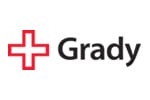
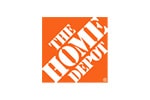


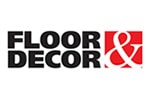
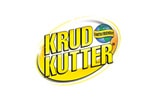

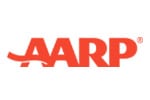
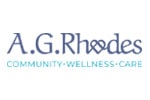




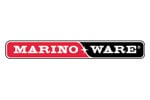



Does social media impact my Google search rankings?
It’s a common misconception that social media has an impact on Google search rankings. While it’s true that social media can help promote your website and improve your visibility in search engines, it doesn’t directly affect your ranking.
There are many factors that influence your ranking in Google, such as the quality of your content, the number of backlinks to your site, and the overall authority of your domain. Social media can play a role in all of these things, but it’s important to remember that it isn’t the be-all and end-all of SEO.
That said, there are some indirect ways in which social media can impact your ranking. For example, if you have a lot of social activity around a certain piece of content, that could signal to Google that the content is popular and relevant, which could in turn influence your ranking.
Additionally, social media can be a great way to build up backlinks to your site. If you have high-quality content that people are sharing on social media, that can attract links from other websites, which is a major factor in Google’s algorithms.